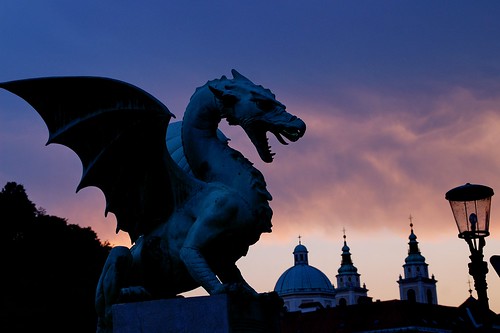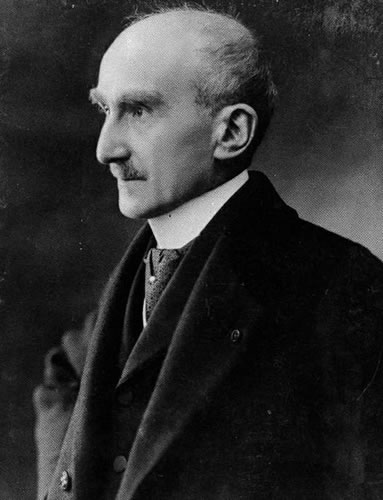Montaigne, "Du parler prompt ou tardif"
 Sunday, March 12, 2017 at 05:13
Sunday, March 12, 2017 at 05:13 An essay ("On speaking promptly or tardily") by this French man of letters. You can read the original here.
Never yet have all the graces been given to a single soul.
Thus we see with regard to the gift of eloquence that some possess facility and promptitude and such, as they say, ease of expression, that they are ready at every instance. Those more tardy never say anything that is not elaborate and premeditated. Similar to how we provide ladies with rules for them to take part in games and physical exercise, in other words, those things in which they most excel, so then if I had to advise this same bunch in these two diverse advantages of eloquence – of which, at least in our century, it seems that preachers and lawyers make the most use professionally – the tardy would be better off as a preacher, it seems to me; the other skill is better for a lawyer. For the former gives the preacher as much leisure as he would like in order to prepare himself; what is more, his career passes uninterruptedly in one thread and towards one consequence. On the other hand, the commodities of a lawyer force him at all times to be in court. And the responses refuted by his opponents simply jostle him and oblige him to take up a new argument.

At the meeting between Pope Clement and King François in Marseille quite the opposite appeared to happen. Mr. Poyet, a man of great reputation whose entire life had been nourished on the bail-dock, had been tasked with addressing the Pope. Having a mature and experienced touch, Poyet, it is truly claimed, arrived from Paris with the very speech ready made with which he was to address His Holiness. The very day it was to be pronounced, the Pope, fearing that Poyet could say something that might offend the emissaries of the other Princes who would be present, sent a proposal to the King which seemed to be the most correct at that time and place, but, as luck would have it, very different from that which Mr. Poyet had been working on. The result was that his argument proved to be useless and he had to come up with another very promptly. As Poyet did not feel capable of doing so, the Cardinal of Bellay was obliged to assume the task.
The part of the lawyer is more difficult than that of the preacher. Nevertheless, we find a greater number of passable lawyers than of passable preachers, at least in France.
It seems that it is more natural or right for the mind to engage in prompt and sudden operation and more natural or right for judgment to undertake slow and well-considered acts. With someone who remains silent because he does not have the luxury of preparing himself and someone else for whom this luxury would not allow him to improve his words, there persists the same degree of estrangement. One often hears of Cassius Severus, who always spoke best when he never reflected at all upon the subject matter. Such skill he owed less to diligence than to luck. Yet it served him well when his words happened to meet with disagreement because his adversaries did not dare nettle him for fear of redoubling his eloquence. Through my own experience I recognize that condition in nature which cannot sustain vehement and laborious premeditation: if it doesn't proceed happily and freely, it doesn't proceed at all. Of certain works we say that they reek of oil and lamp owing to a certain asperity or roughness which the labor roundly imprints upon them. But apart from this, the concern about doing well – and the struggle of that soul too bound to and too stretched by its enterprise – shall break and impede itself like water, which, owing to its being pressed by violence and abundance could not exit from an open bottleneck.
Within that condition of nature of which I speak there is, at the same time, also that sentiment which should not be agitated by strong passions, like Cassius's anger (because this movement would be too harsh); it asks not to be shaken but to be sought after; it asks to be heated and roused by strange, in-the-moment and fortuitous occasions. If it ventures out by itself, it will do nothing more than drag its heels and languish; agitation is its life and its grace.
I do not consistently adhere to my self-possession and disposition; here chance has right of way – the moment, the company, the very timbre of my voice – it affects my mind much more. And I find myself testing and using chance.
In this way spoken words are worth more than their written counterparts, provided they may be chosen without cost or price.
It also occurs to me that I do not find myself where I look for myself: I find myself more often by chance encounter than by the inquisition of my judgment. And in so writing I will have launched some subtlety of thought and I understand full well, as dull as it may seem to another, so sharp may it appear to me. Let us leave behind all these honesties. These will be pronounced by each of us according to his ability. I have lost my ability so utterly that I do not know what I wanted to say and a stranger often discovers the truth before I do. If I were to erase all that happened to me, I would remove the sheen and ore from everything. Chance encounter sooner or later will give me a day more apparent than noontime; and will surprise me with my hesitation.
 Montaigne in
Montaigne in  Essays,
Essays,  French literature and film,
French literature and film,  Translation
Translation 





